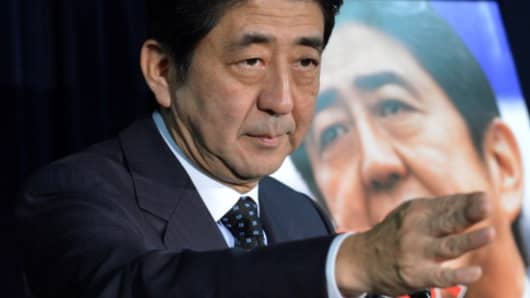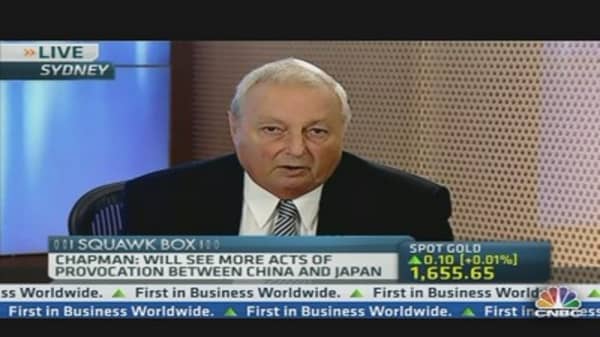2013 could prove to be the year that Japan steps up its military role in Asia. A simmering territorial spat with China and Japan's assertive new Prime Minister Shinzo Abe will see to that, analysts tell CNBC.
Japan plans to raise military spending for the first time in over a decade, boosting defense expenditure by 2 percent to just over $53 billion in the fiscal year starting April, local media reported at the weekend.
Abe, who was elected last month, wants to loosen the constraints of Japan's post-war pacifist constitution and has vowed to take a tougher line against China over a territorial dispute in the East China Sea.
"Abe's real focus lies in increasing Japan's security," said Martin Schulz, senior economist at the Fujitsu Research Institute. "The new government has two main aims: the first is fixing the economy and the second is to improve self-defense. So we are likely to see a bigger role for the military and increased defense spending in the next budget."
(Read More: Is Bank of Japan Already Dancing to Abe's Tune?)
Escalating Chinese aggression over Japan's control of the disputed islands, known as Senkaku in Japan and Diaoyu in China, has raised the prospect of military conflict in the region, although many analysts think this is still unlikely. On Saturday, Japan mobilized fighter jets to head off a Chinese plane flying near the islands, the Japanese Defense Ministry said.
A revision in Japan's constitution that upgraded Japan's Self Defense Force to a fully operating military would allow Japan to take on a bigger military role in Asia.
"The political atmosphere in Japan is such that any re-writing of the constitution is going to get support from the lower house (of parliament)," Colin Chapman, vice president for Asia-Pacific at global intelligence firm Strafor told CNBC Asia's "Squawk Box" on Monday. "There does appear to be sufficient movement to have some re-writing of the constitution."
The notion, which would have once alarmed Japan's neighbors scarred by memories of World War 2, appears to be gaining favor with some Asian countries, which fear China's growing military role in the South China Sea.
The Philippine's foreign minister told the Financial Times last month that the country would strongly support a rearmed Japan as a counterweight to growing military assertiveness by China.
"Japan is worried about China and who wouldn't be given China's increased military posturing," said Chapman.
Schulz said a re-writing of Japan's constitution was unlikely to be easy and would meet with opposition from Japan's upper house of Parliament, which would also have to approve any change.





